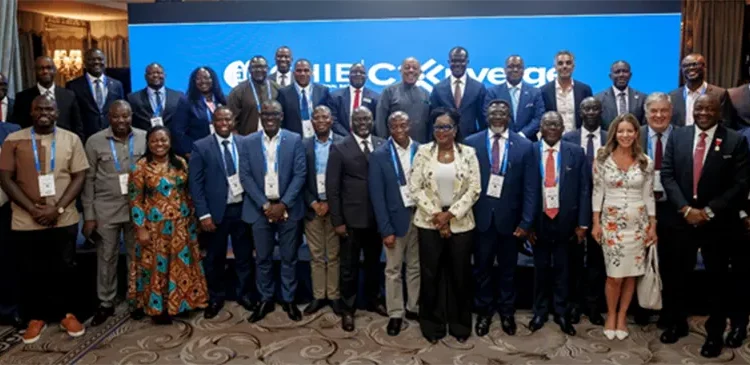Participants at the forum
Ghana International Bank (GHIB) has wrapped up its flagship thought-leadership forum, GHIBCONVERGE 2025, after three days of intensive discussions on reshaping Africa’s commodity trade and finance landscape.
The event, which ran from August 6–8 in the City of London, convened policymakers, financiers, commodity executives, legal specialists, and development experts from across Africa and the global market.
Together, they examined how the continent could shift from its long-standing dependence on raw commodity exports to value-added trade, supported by sustainable finance and integrated infrastructure.
Held under the theme “Rethinking Commodity Finance for Growth”, the conference highlighted opportunities for industrialisation, structural reforms, and innovative financing to unlock Africa’s economic potential.
In his opening address, GHIB Chief Executive Officer, Dean Adansi, lamented the continent’s limited progress in value addition.
He revealed that just 14 percent of Africa’s exports are processed goods, a figure unchanged for decades.
“We are sitting on untapped billions in export revenues because we continue to export raw cocoa instead of chocolate, raw gold instead of refined bullion, and raw cashew instead of processed kernels,” he said.
Mr. Adansi called for dedicated value-addition funds, expanded structured trade finance for processing plants, and stronger risk-sharing arrangements between African and global lenders.
He also urged regulators to harmonise policies across the continent to ensure processed goods benefit fully from the African Continental Free Trade Area (AfCFTA).
The Governor of the Central Bank of The Gambia, by Buah Saidy, in a keynote address, stressed the role of commodities in macroeconomic stability.
He argued that Africa must retain more value from its resources by investing in refining capacity and regional value chains.
“By securing fairer terms of trade and building resilience at home, we can anchor our currencies, strengthen reserves, and create lasting jobs,” he stated.
The First Deputy Governor of the Bank of Ghana, Dr. Zakaria Mumuni, emphasised the importance of domestic gold refining.
He said local refining would not only boost export revenues but also reduce Ghana’s reliance on imported refined bullion.
“Our long-term stability depends on capturing more value from the commodities we produce,” he noted, adding that such efforts would improve reserves, strengthen the trade balance, and deliver greater benefits to Ghanaians.
Former UK Cabinet Minister and GHIB Board Member, Lord Paul Boateng, challenged African governments to view commodities as geopolitical assets.
“Critical minerals, cocoa, gold are not just trade items. They are bargaining chips in a changing global order, and Africa must leverage them for technology transfer, infrastructure investment, and sustainable value chains,” he said.
His remarks set the stage for a panel on critical minerals, where experts examined the financing models and policy frameworks required to move Africa beyond raw extraction into refining and manufacturing, particularly for electric vehicle supply chains, which are driving global demand for battery metals.
At the end of the conference, consensus emerged that Africa’s path to sustainable growth lies in transforming its natural resource wealth into industrial and financial powerhouses, a vision requiring bold reforms, cross-border cooperation, and innovative financing.
A Business Desk Report


